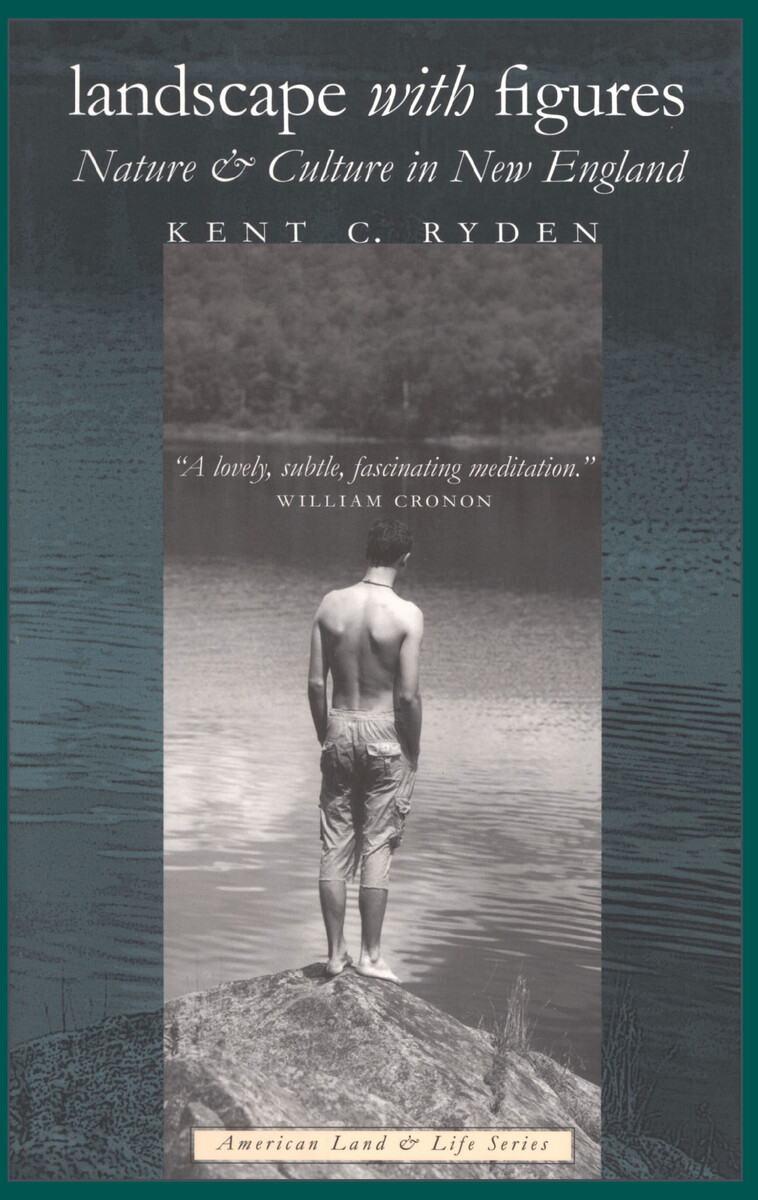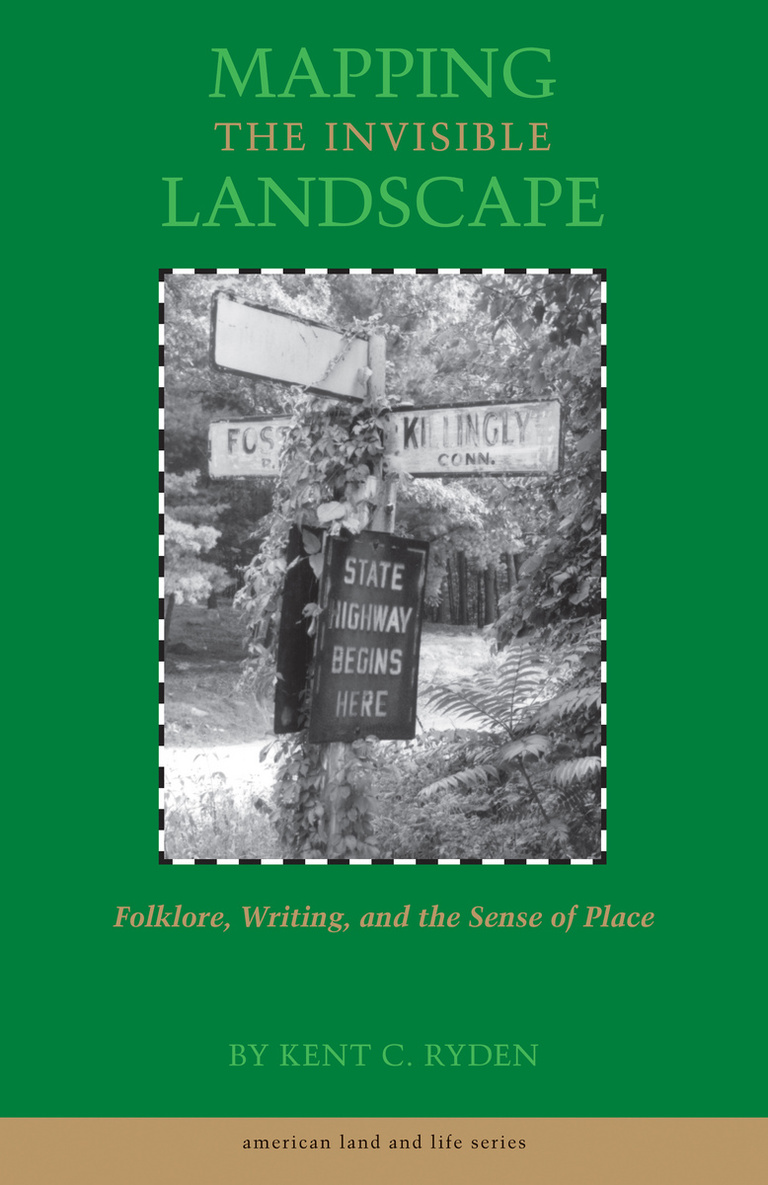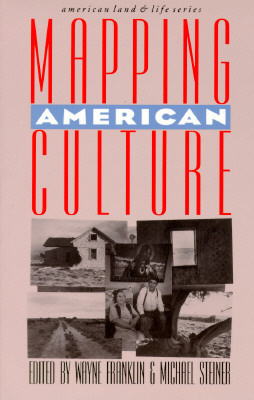Kent Ryden does not deny that the natural landscape of New England is shaped by many centuries of human manipulation, but he also takes the view that nature is everywhere, close to home as well as in more remote wilderness, in the city and in the countryside. In Landscape with Figures he dissolves the border between culture and nature to merge ideas about nature, experiences in nature, and material alterations of nature.
Ryden takes his readers from the printed page directly to the field and back again-. He often bypasses books and goes to the trees from which they are made and the landscapes they evoke, then returns with a renewed appreciation for just what an interdisciplinary, historically informed approach can bring to our understanding of the natural world. By exploring McPhee's The Pine Barrens and Ehrlich's The Solace of Open Spaces, the coastal fiction of New England, surveying and Thoreau's The Maine Woods, Maine's abandoned Cumberland and Oxford Canal, and the natural bases for New England's historical identity, Ryden demonstrates again and again that nature and history are kaleidoscopically linked.
“Kent Ryden has written a lovely, subtle, fascinating meditation on the ways nature and history have mingled to produce the New England landscape as we know it today. Anyone concerned about the human place in nature will gain much by reading this thoughtful and very personal book.”—William Cronon, author of Changes in the Land: Indians, Colonists, and the Ecology of New England
“This book is worth its price for the disquisition on the invention of New England autumns alone; there are all sorts of nuggets here, which show the insights to be gained when critics take the natural world seriously.”—Bill McKibben, author of The End of Nature
“Landscape with Figures is a masterful analysis of the environmental and cultural generators of local, regional, and mythical identity.”—John R. Stilgoe, Harvard University
“Ryden's deeply informed, engagingly written account of how New Englanders have constructed—and been constructed by—their encounters with regional places is both a significant work of literary and cultural-historical scholarship and a significant act of environmental citizenship.”—Lawrence Buell, author of The Environmental Imagination: Thoreau, Nature Writing, and the Foundation of American Culture
“…[a] well-written, engaging, intelligent book.”—Journal of American History
“The subtitle of Kent Ryden’s new book states that the subject is ‘Nature and Culture in New England.’ But as Ryden makes clear throughout this beautifully written work, his approach—equal parts folklore study, autobiography, landscape history, and literary criticism—can shed light on the ‘many places in America’ where ‘on a small and intimate scale, human culture is incorporated directly into nature,’ …The richness of this new kind of story will be apparent to anyone who reads Landscape with Figures, an exemplar of interdisciplinary methodology and a work that should serve as a model for future ecocritical scholarship.”—ISLE



